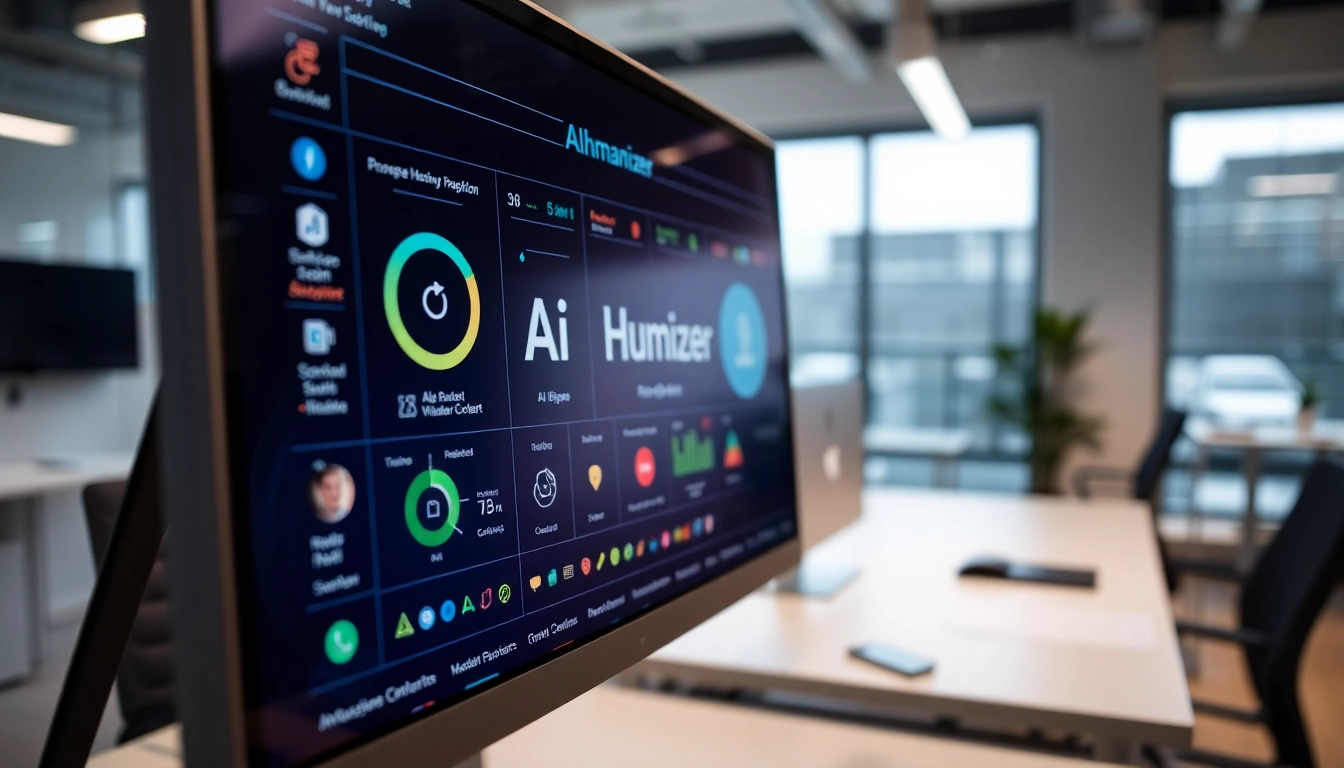Understanding Technology: Definition and Significance
In our rapidly changing world, technology has become a cornerstone of modern society. Defined broadly, technology is the application of scientific knowledge to solve problems and improve the quality of life, often achieved through technical methods in various industries. This multifaceted domain is not just a collection of tools or gadgets; it deeply influences our daily lives, reshapes industries, and drives innovation.
What is Technology?
At its core, technology encompasses a range of tools, procedures, and systems that human beings develop to meet their needs. It is rooted in scientific principles but goes beyond mere theoretical knowledge. Technology involves practical applications, turning ideas into actionable solutions. From the wheel to the internet, each technological advancement has played a significant role in enhancing human capability and efficiency.
The Role of Technology in Daily Life
Technology is inextricably woven into the fabric of our everyday experiences. It enhances communication, facilitates education, transforms entertainment, and revolutionizes healthcare. Smart devices enable instant interaction, while educational technologies extend learning opportunities across geographical boundaries. Technologies like telehealth are redefining the delivery of medical services, making healthcare more accessible than ever before. The omnipresence of technology is a testament to its essential role in contemporary living.
Impact of Technology on Problem Solving
One of the most significant contributions of technology is its ability to provide solutions to complex problems. For instance, advancements in artificial intelligence (AI) allow for data analysis at unparalleled speeds, helping organizations derive actionable insights from vast amounts of information. In agriculture, precision farming utilizes technology to enhance crop yields while minimizing waste. The integration of technological solutions into problem-solving not only increases efficiency but also promotes innovation by allowing for new approaches to age-old challenges.
Types of Technology in Today’s World
Information Technology and Its Applications
Information Technology (IT) is at the forefront of the technological revolution, facilitating data management, communication, and information dissemination. IT encompasses hardware, software, and networking technologies, all designed to process and share information efficiently. Applications of IT range from cloud computing services, which allow businesses to store and process data remotely, to cybersecurity solutions that protect sensitive information from unauthorized access. The rise of Big Data and analytics tools has empowered businesses to make data-driven decisions, enhancing productivity and competitive advantage.
Consumer Technology: Gadgets That Matter
Consumer technology includes all the gadgets and devices that individuals use on a daily basis, enhancing their productivity and leisure. Smartphones have changed the way we communicate, shop, and interact with the world. Wearable technology like smartwatches and fitness trackers integrates health monitoring into our daily routines. Home automation systems, often referred to as smart home technology, provide enhanced security and convenience, allowing users to manage their homes remotely. The design and functionality of these consumer technologies reflect an understanding of user needs, making life more manageable and enjoyable.
Industrial Technology: Innovations in Manufacturing
Industrial technology focuses on improving and innovating the processes involved in manufacturing and production. Automation and robotics have revolutionized the manufacturing sector, increasing efficiency and precision. For instance, advanced robotics can assemble products in a fraction of the time that human labor would take, while 3D printing is altering how we approach product design and prototyping. Innovations such as the Internet of Things (IoT) enable machinery to communicate with each other and with human operators — enhancing the decision-making process and minimizing downtime.
Emerging Trends in Technology
AI and Machine Learning: The Future of Technology
Artificial Intelligence (AI) and Machine Learning (ML) are among the most exciting frontiers in technology. These technologies enable machines to learn from data and make predictions or decisions without human intervention. AI applications span multiple sectors, from customer service chatbots providing 24/7 support to predictive analytics in financial markets. As these technologies continue to evolve, they hold the promise of driving efficiency and accuracy across various industries.
Sustainable Technology: Leading the Green Revolution
With growing concerns about climate change and environmental sustainability, technology is playing a crucial role in promoting sustainability. Renewable energy technologies, such as solar and wind power, are revolutionizing energy production, making it cleaner and more accessible. Innovations like electric vehicles (EVs) are reducing reliance on fossil fuels, while smart grid technologies enhance energy efficiency. Sustainable technology not only addresses pressing environmental challenges but also opens new avenues for economic growth and job creation.
Blockchain Technology: Beyond Cryptocurrency
Blockchain technology gained prominence as the underlying system for cryptocurrencies like Bitcoin, but its applications extend far beyond digital currencies. Blockchain provides a decentralized ledger that enhances transparency and security in transactions. Industries such as finance, supply chain, and healthcare are adopting blockchain to improve tracking, reduce fraud, and ensure data integrity. Its potential to eliminate intermediaries and streamline processes presents substantial opportunities for innovation.
Challenges and Considerations in Technology Use
Privacy and Security in a Digital World
As technology advances, concerns regarding privacy and data security continue to grow. The collection and analysis of personal data by companies raise ethical questions about user consent and data use. Breaches of sensitive information can have devastating consequences for individuals and organizations alike. Businesses must adopt robust cybersecurity measures and prioritize user privacy to build trust in their technological solutions.
Technology Addiction: Balancing Use and Life
Another significant challenge in our tech-driven world is the risk of technology addiction. With devices constantly within reach, individuals may find themselves spending excessive time online or engrossed in their screens, leading to negative impacts on mental and physical health. It is essential for users, supported by community and organizational initiatives, to strike a balance between the benefits of technology and maintaining healthy lifestyles.
Ethics of Technology Development
The rapid pace of technological innovation often outpaces the establishment of ethical guidelines governing its use and development. Issues such as algorithmic bias in AI applications, surveillance, and the implications of autonomous technologies prompt critical conversations around their impact. Stakeholders must engage in discussions to clarify the ethical obligations associated with emerging technologies, ensuring they are developed in ways that are responsible and inclusive.
The Future of Technology: What Lies Ahead?
Predictions for Technological Advancement
Looking ahead, technology will likely continue to evolve at an unprecedented pace. Innovations in AI, quantum computing, and biotechnology are expected to bring disruptive changes across many sectors. The integration of these technologies may yield transformative solutions to some of society’s most pressing issues, including climate change, healthcare delivery, and income inequality. Predictive technologies will enhance our ability to anticipate and respond to challenges in real time.
How Technology Will Shape Future Careers
The job market is undergoing a transformation driven by technological advancement. Many traditional jobs are evolving, while new roles are emerging in tech-centric industries. Skills in data analytics, cyber security, and software development are becoming increasingly valuable. Educational institutions must adapt to these changes by equipping students with the knowledge and skills needed to thrive in an ever-changing landscape.
Preparing for a Technology-Driven Society
As we move deeper into a technology-driven society, preparing for future changes becomes vital. Government policies, corporate practices, and individual preparedness will shape our collective transition. Emphasizing lifelong learning, digital literacy, and ethical considerations in technology use will not only empower individuals but also foster a society that can navigate and thrive amid technological transformation.













